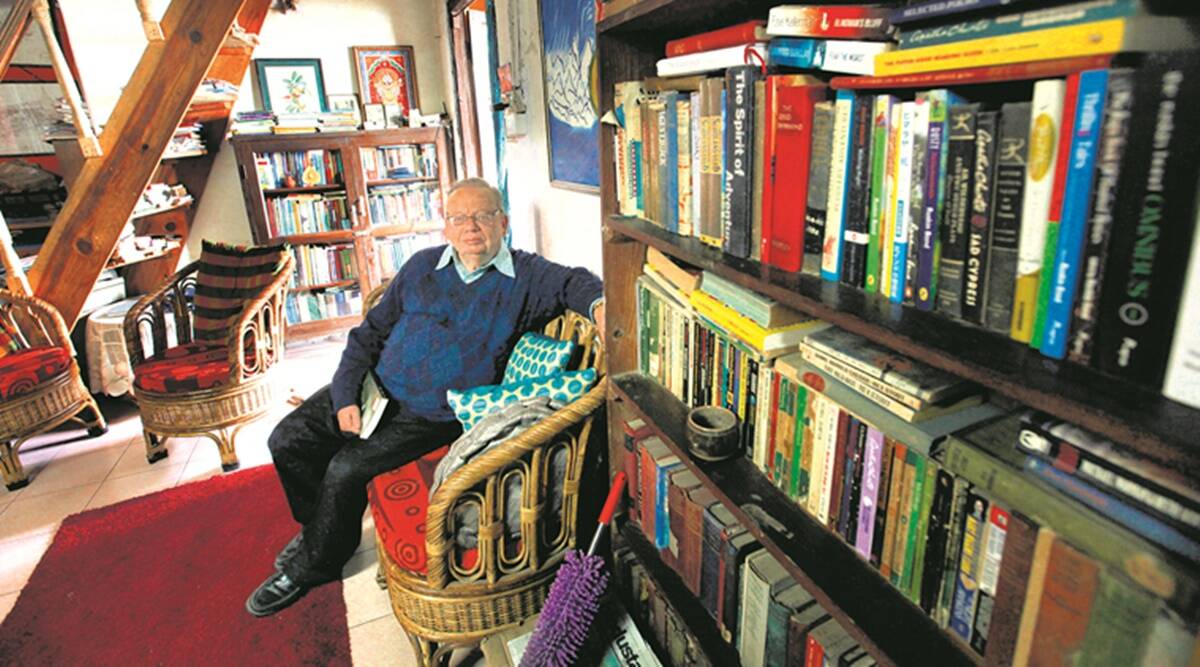Frontlist | There’s no retirement age for writers: Ruskin Bond
Frontlist | There’s no retirement age for writers: Ruskin Bondon Nov 10, 2020

As a writer, Bond has known hope and despair, success and failure, some recognition, but also long periods of neglect and critical dismissal. However, he has no regrets
For prolific author Ruskin Bond, there’s no retirement age for writers and life would be intolerable if he did not have the freedom to write every day. He considers himself a “fortunate person”, having been able to make a living for nearly 70 years by doing what he enjoys most: writing. Bond has come out with yet another book How To Be A Writer which gives a glimpse into the writing credo of the man who has had an incredibly successful writing career. The book is peppered with nuggets of practical advice for every person who is aspiring to write and be published – all told in Bond’s characteristic understated, tongue-in-cheek, humorous style. Writing, for Bond, is the simplest and greatest pleasure in the world. “Putting a mood or an idea into words is an occupation I truly love. I plan my day so that there is time in it for writing a poem, or a paragraph, or an essay, or part of a story or longer work; not just because writing is my profession, but from a feeling of delight,” he says. “Life would be intolerable if I did not have this freedom to write every day,” he feels. “The important thing is to keep writing, observing, listening and paying attention to the beauty of words and their arrangement.” According to Bond, he writes not to please everyone but himself. “I am grateful for my continued independence and the necessity to keep writing for my living and for those who share their lives with me and whose joys and sorrows are mine too. An artist must not lose his hold on life. We do that when we settle for the safety of a comfortable old age. But there is no retirement age for writers,” he writes in his book, published by HarperCollins India. He believes being alone is vital for any creative writer though that does not mean that one must live the life of a recluse. “People who do not know me are frequently under the impression that I live in lonely splendour on a mountain top, whereas in reality, I share a small flat with a family of 12 – and I’m the 12th man, occasionally bringing out refreshments for the players!” Still he prefers solitude. “I am not, by nature, a gregarious person. Although I love people, and have often, on an impulse, made friends with complete strangers, I am also a lover of solitude.” He prefers walking alone to walking with others. “That ladybird or the wild rose would escape my attention if I was engaged in a lively conversation with a companion. Not that the ladybird is going to change my life. But by acknowledging its presence, stopping to admire its beauty, I have done obeisance to the natural scheme of things, of which I am only a small part.” As a writer, Bond has known hope and despair, success and failure, some recognition, but also long periods of neglect and critical dismissal. However, he has no regrets. “I have enjoyed the writer’s life to the full, and one reason for this is that living in India has given me certain freedoms which I would not have enjoyed elsewhere. Friendship, when needed. Solitude when desired. Even, at times, love and compassion.” Wherever Bond goes, he meets young writers, or young people who want to write, and they always ask him questions. So what is it that a person requires the most to become a writer? According to Bond, some of the qualities are: love of books, language and life; an observant eye; a good memory; enthusiasm; optimism and persistence. He advises aspiring writers to read, saying books are essential for the creative mind, and good readers become good writers. He also talks about writing routine, the importance of notes, finding own style and voice, creating characters, different steps in publishing and never giving up in the book, which has illustrations by Shamika Chaves and Chaaya Prabhat.
Authors
Bestseller
Books
Coronavirus
Covid-19
Frontlist
Frontlist Article
Frontlist Book News
Frontlist education News
Frontlist India
Frontlist Indian Authors News
Frontlist Indian Writers News
Frontlist Latest news
Frontlist Ruskin Bond
Google news
Publishers
Publishing
Writers



.jpg)






.jpg)


.jpg)
.jpg)
.jpg)
.jpg)
.jpg)

.jpg)










Sorry! No comment found for this post.